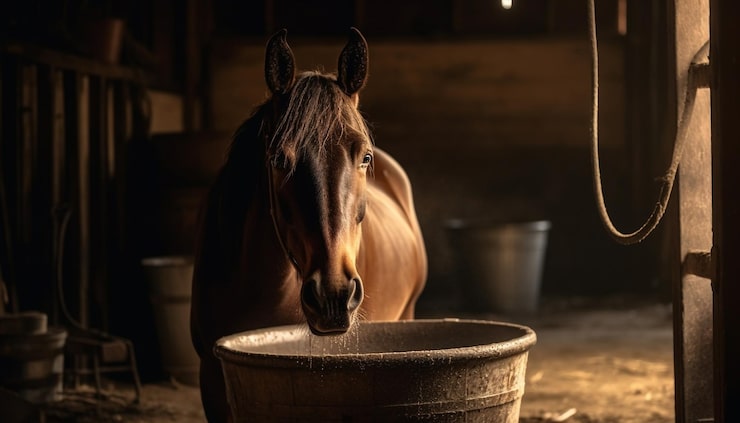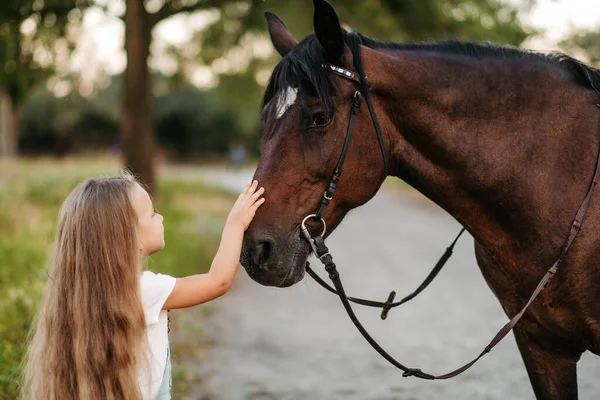As horses age, their needs change, and it’s crucial to adapt their living conditions to ensure they remain healthy and comfortable. The debate between pasture vs stall for senior horses is a common topic among equestrian enthusiasts who want the best for their aging equine companions.
In the initial stages of considering where to house your senior horse, it’s essential to weigh the benefits and drawbacks of both pastures and stalls. This decision can significantly impact your horse’s health, behavior, and overall quality of life.

Understanding the Needs of Senior Horses
Senior horses, typically considered to be over 15 years old, often have specific needs that differ from their younger counterparts. These needs can include special dietary requirements, increased veterinary care, and a greater emphasis on comfort and mobility.
Dietary Considerations
As horses age, their digestive systems can become less efficient. Providing a specialized diet that includes easily digestible nutrients is crucial. Consider reading more about digestive support for senior horses to ensure your horse’s dietary needs are met.
Health and Mobility
Aging horses may face joint issues or arthritis, impacting their mobility. Ensuring they have comfortable and accessible living conditions can help mitigate these issues. Regular checkups are vital, and you can find more tips on annual checkups for senior horses.
The Benefits of Pasture Living for Senior Horses
Many horse owners opt for pasture living due to its natural environment and the freedom it offers.
Natural Environment
Being in a pasture allows horses to engage in natural behaviors, such as grazing and socializing with other horses. This can promote mental well-being and reduce stress.
Exercise and Mobility
Pastures provide ample space for horses to move around, which is beneficial for maintaining muscle tone and joint flexibility. Regular movement can also help manage weight, a common issue in senior horses. For more on managing weight, check out our guide on weight gain tips for senior horses.
The Drawbacks of Pasture Living
While pastures offer many benefits, they also come with some challenges.
Weather Conditions
Exposure to harsh weather can be a concern for older horses, especially in winter or extreme heat. Providing adequate shelter and monitoring their condition is essential.
Pasture Maintenance
Maintaining a pasture requires effort, such as regular fencing checks and ensuring the land is free from harmful plants.
The Advantages of Stall Living for Senior Horses
Stalls offer a controlled environment that can be beneficial for senior horses with specific needs.
Controlled Environment
Stalls provide protection from adverse weather and allow for closer monitoring of a horse’s health. This can be particularly useful for horses with medical conditions that require regular attention.
Personalized Care
Stall living allows for tailored feeding schedules and the provision of necessary supplements. Learn more about the importance of supplements for aging horses.
The Drawbacks of Stall Living
Despite its benefits, stall living has its disadvantages.
Limited Movement
Stalls restrict a horse’s movement, which can lead to stiffness and poor muscle condition. It’s important to ensure your horse gets regular exercise outside of the stall.
Social Isolation
Horses are social animals, and prolonged isolation in a stall can lead to behavioral issues. Providing opportunities for social interaction is important for their mental health.
Finding the Right Balance
For many senior horses, a combination of both pasture and stall living might be ideal. This allows for the benefits of both environments while mitigating their drawbacks.
Flexible Schedules
Some owners opt to keep their horses in stalls during adverse weather and allow them to graze in pastures when conditions are favorable. This flexibility can cater to a horse’s changing needs as they age.
Regular Monitoring
Whether your horse lives in a pasture, a stall, or both, regular monitoring of their health and behavior is crucial. For tips on maintaining hydration, visit hydration tips for senior horses.
Conclusion
Choosing between pasture vs stall for senior horses is a decision that should be based on the individual needs of your horse, your resources, and your environment. With careful consideration and regular veterinary advice, you can ensure that your senior horse enjoys a happy and healthy life.

FAQs
What are the key considerations for senior horse care?
Consider their dietary needs, health conditions, and the importance of regular exercise and social interaction.
How can I ensure my senior horse is comfortable in a stall?
Provide adequate bedding, ensure ventilation, and allow for regular outdoor time for exercise and socialization.
Is pasture living always better for senior horses?
Not necessarily. It depends on the individual horse’s health, the pasture conditions, and the owner’s ability to provide additional care when needed.
This article contains affiliate links. We may earn a commission at no extra cost to you.
